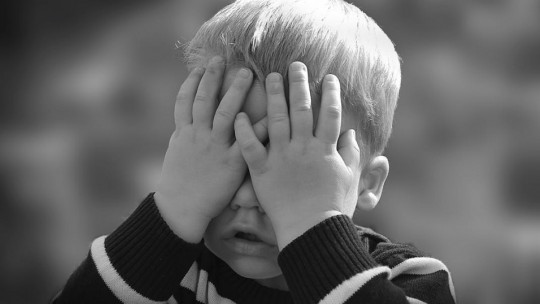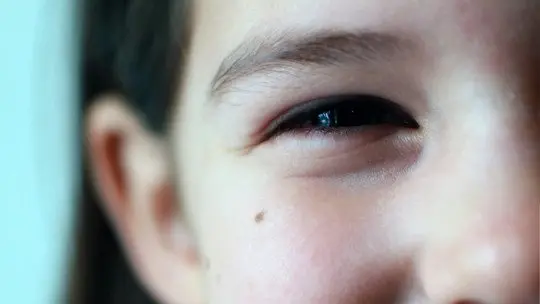
Autism spectrum disorders (ASD) are a set of developmental disorders that generate a series of challenges for the affected person and those who support them.
Although each case of ASD is particular, the greatest challenges are usually associated with reciprocal social interaction and overcoming the difficulties of creating repetitive and restricted behavioral patterns. Much research has been carried out on the implications of ASD in childhood and, fortunately, health professionals and families know more and more about the topic that years ago was an enigma. However, the information about the challenges that people with ASD they must face in adulthood is still in short supply. For this reason, in this article we will review what are the most frequent challenges for adults with ASD and what strategies they can put into practice to overcome them.
Understanding ASD: Biological and Behavioral Perspectives
First of all, we must know that Autism is usually defined from a behavioral and not a biological dimension. People with ASD present challenges when establishing social relationships with other people, communicating verbally or non-verbally, and are often inflexible when it comes to routine changes. Below we will point out these challenges in greater detail, but nevertheless, the importance of the behavioral dimension in ASD does not mean that there is a biological alteration at the brain level as a basis.
Regarding the latter, although the precise causes of the autism spectrum are still not known precisely, several investigations have found that a dysfunction of the mirror neuron system could be involved. This system is a neural complex that is related to our movements and that responds specifically to the movements and movement intentions of other individuals.
Learning by imitation, language acquisition, emotional expression, understanding what happens to others and empathy They are functions that depend on mirror neurons. Because there is an alteration in these functions in people with ASD, it is believed that there is also a dysfunction at the neurobiological level. There is considerable evidence to support the hypothesis that genetic factors (genes and their functions and interactions) are one of the main underlying causes of ASD. However, there are still many questions to investigate regarding the biology linked to autism, but it is always important to be aware of the latest advances regarding this topic.
Challenges for adults with ASD
People with ASD present a set of challenges that take on certain singularities when they reach adulthood. Below we will point out the most significant ones:
Challenges in social interaction
One of the ways in which ASD manifests itself is in the alteration of social situations that involve reciprocal socio-emotional interaction. It is difficult for many people with ASD to have a conversation, a “back and forth” with another person. Also There are exceptions: some individuals can participate in discussions with others and argue about very specific and complex topics. However, it is a common and expected challenge. There may also be atypicalities in non-verbal communication, such as postures, gestures and looks.
These two factors could lead people with ASD to have the challenge of making friends. In adulthood, furthermore, friendships take on a fundamental role, since the parents who supported the person with ASD during their youth could have aged or no longer be available for support.
Strategies when making friends
Autism does not deprive people of having friendships; It doesn’t mean they don’t need them either. There is a myth that people with autism enjoy being alone. This need not be so. Many people have improved their quality of life significantly thanks to having forged friendships, finding common ground and interests with other people.
Many people with ASD tend to have certain topics of interest in which they tend to become specialists, so this can be used in favor of starting a friendship. In their experience, some people with ASD have indicated that they had to learn to listen to others in these conversations that revolve around their specific interests, by which they can sometimes become absorbed.
It is extremely valuable to have someone to share joys with but also someone to support each other when life makes us falter. Having emotional support is key for everyone, but especially for people with ASD, since adults diagnosed with disorders of this spectrum have a greater tendency to suffer from a mental disorder than other adults. Having a support network is a protective factor against mental pathologies.
Challenges in the face of change
A characteristic of people with ASD is that they tend to adhere to certain routines and rituals. These vary from individual to individual. However, The challenge with this is that sticking to their rigid habits can make them very inflexible and resistant to change. For example, people with ASD have been put to a gigantic test when their routines were drastically modified by preventive social isolation measures as a result of the coronavirus pandemic. Changes in routine deregulate them emotionally and some tend to become distressed, feel irritable or afraid.
Strategies to face change
It is important that adults with ASD gradually acquire some flexibility in their routines, as this will ensure that their usual behaviors become more adaptive to the environment around them. This is essential since in academic or work environments it is common for there to be modifications in routines, schedule changes, last minute calls, unforeseen events, etc.
Therefore, A possible strategy is to introduce small progressive changes in daily life, gradual, so that the person can acquire a broader repertoire of behaviors to function daily and without this generating a crisis. It is not necessary that they be huge changes (at first, it could be conceived as a “game” or training). On the other hand, those who interact with a person with autism could put anticipation into practice as a strategy. The objective is to introduce information before a sudden or abrupt change occurs in the person with ASD, little by little, to prevent a potential emotional overflow.
It is important to note that strategies for behavioral change should ideally be accompanied by a psychotherapist specialized in the subject. The treatments that currently have the most evidence for ASD are, according to Hyman et al., behavioral ones. As is usual for most disorders, cognitive-behavioral therapy has also proven to have very good results.
Challenges around physical health: sleeping and eating habits
People with ASD are more likely to suffer from certain disorders or conditions linked to physical health. These can be extremely harmful for adults, as they have obligations and responsibilities that depend on good rest and optimal health. For example, people with ASD They are more likely to maintain unusual sleeping and eating schedules and have a greater tendency to suffer from gastrointestinal problems, epilepsy, among others.
Strategies to take care of your health
Taking into account the challenges of ASD in relation to health, a good strategy is to incorporate a sport to not only improve physical condition, but also to regulate sleep schedules and release endorphins capable of stabilizing the emotional state. Starting a sporting activity can be difficult for some people with ASD, but there are a wide range of ways to incorporate exercise into your routine. Ultimately, it is important to remember that the best alternative for health care is to see a doctor regularly and follow their recommendations.








